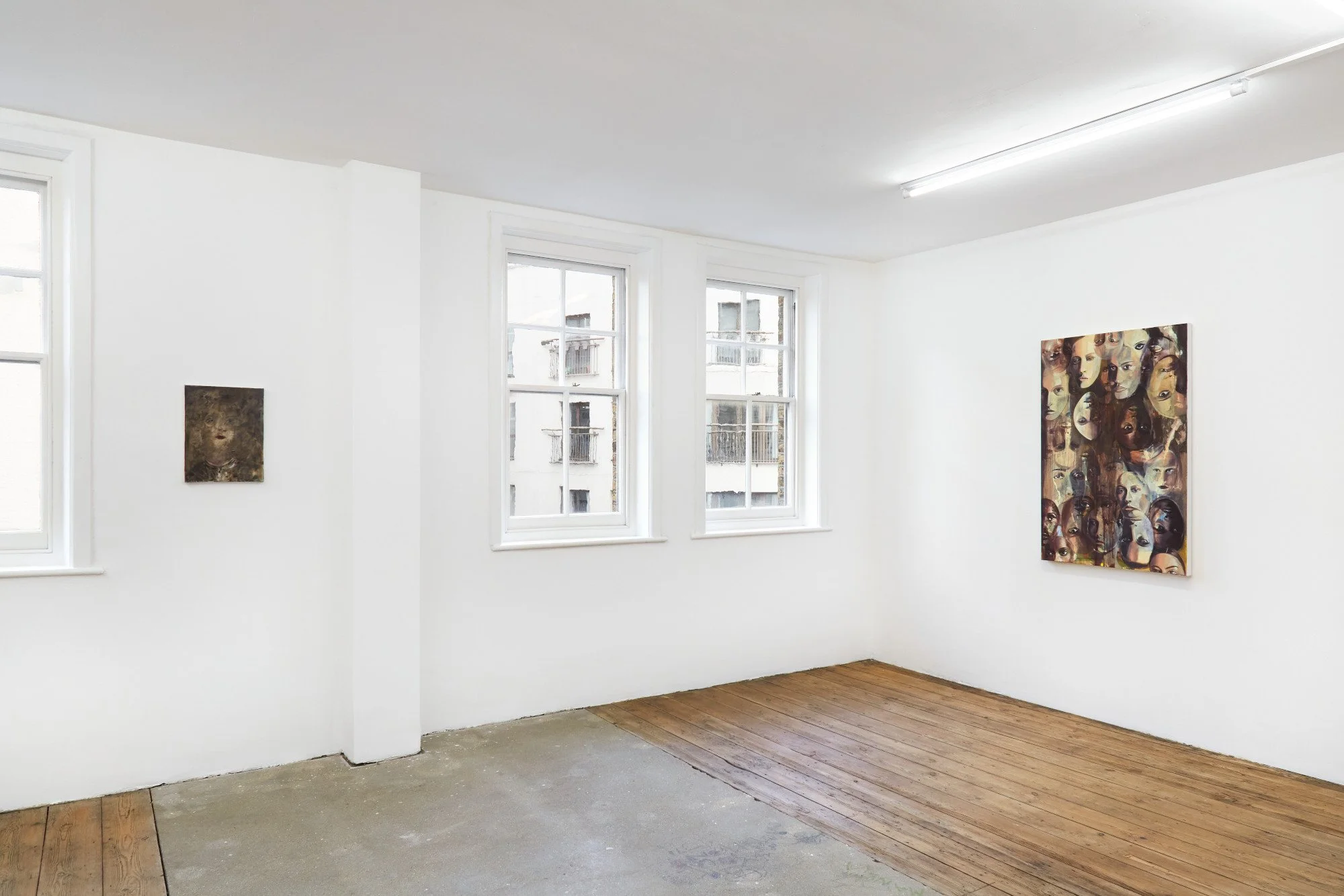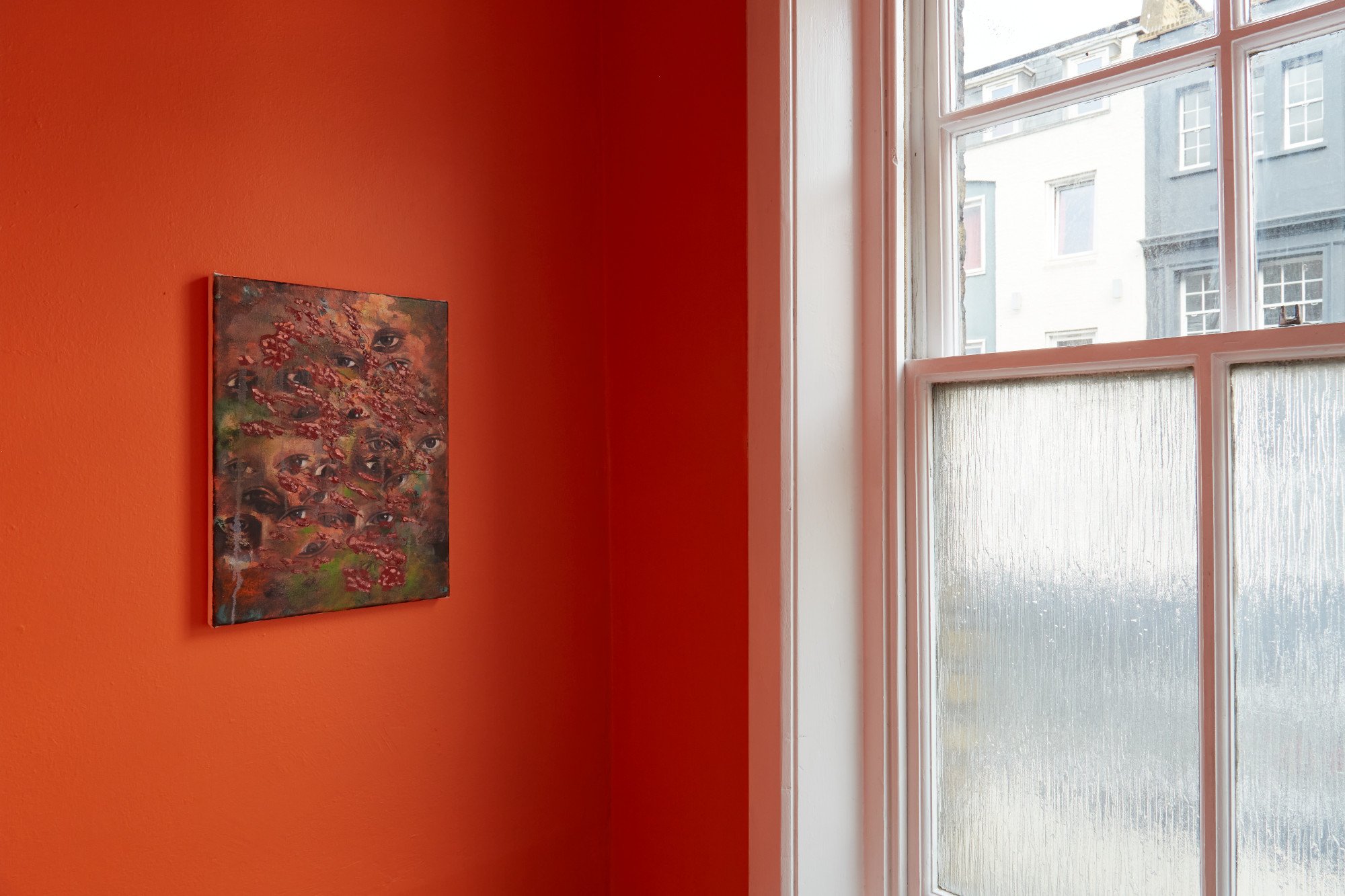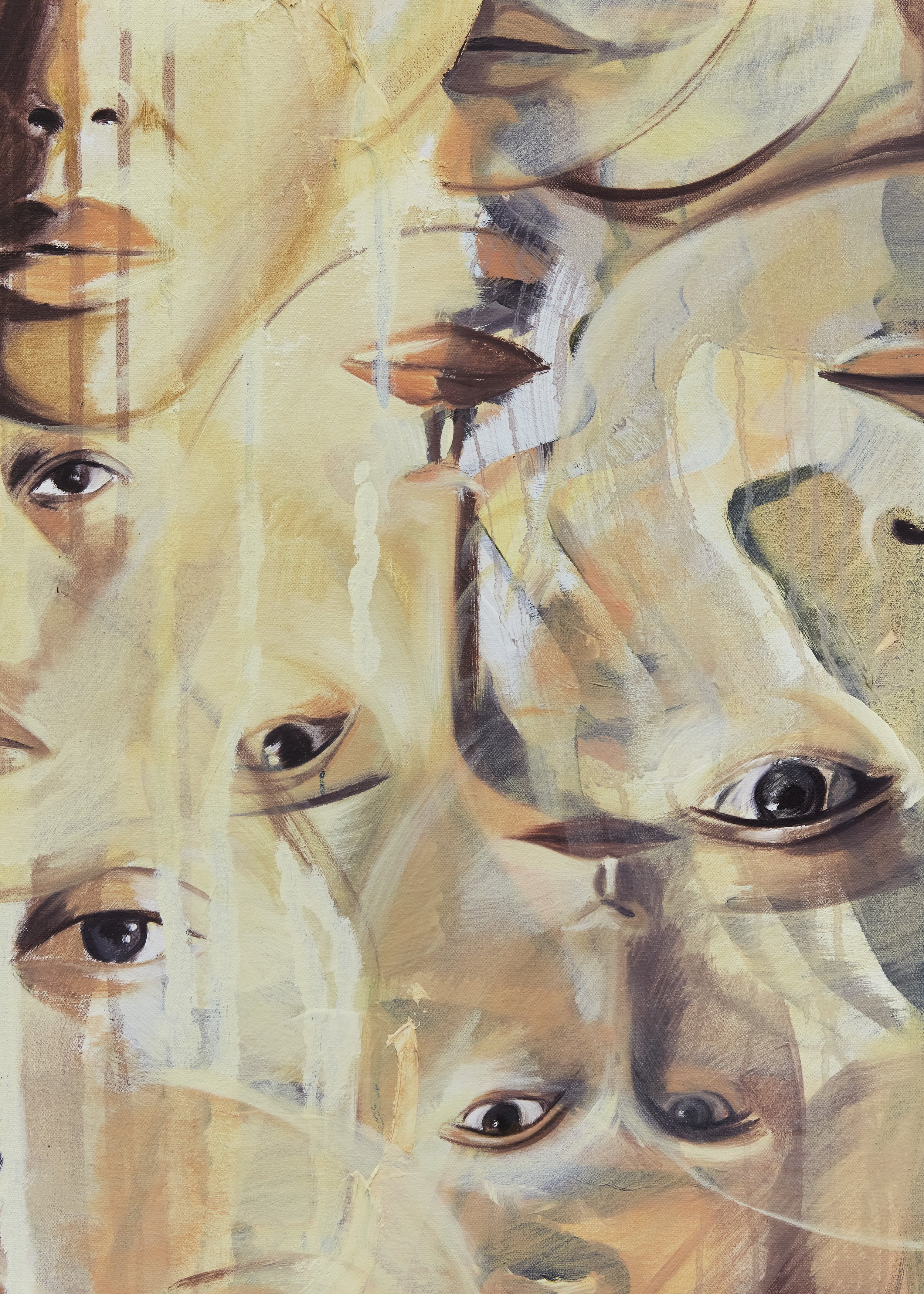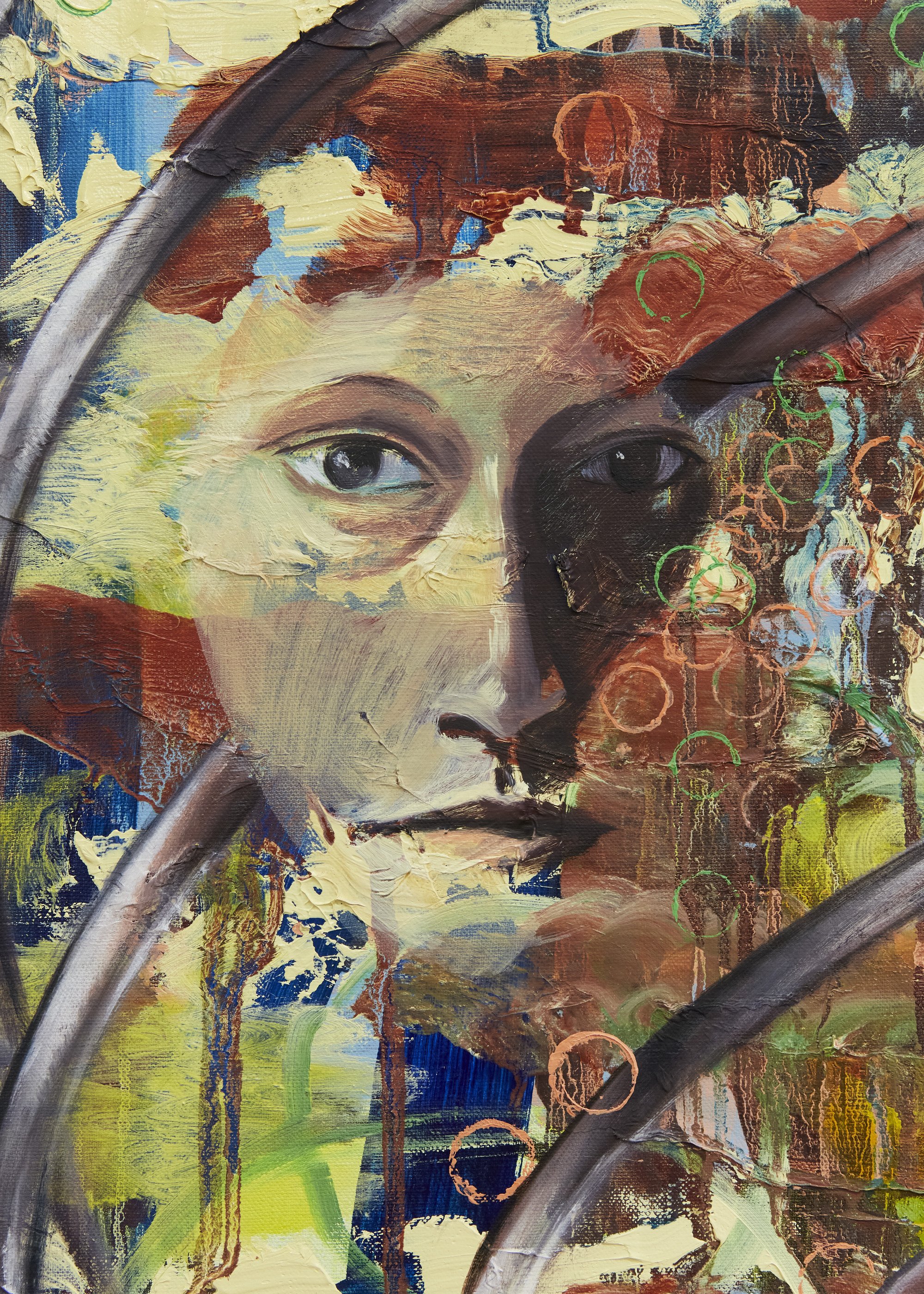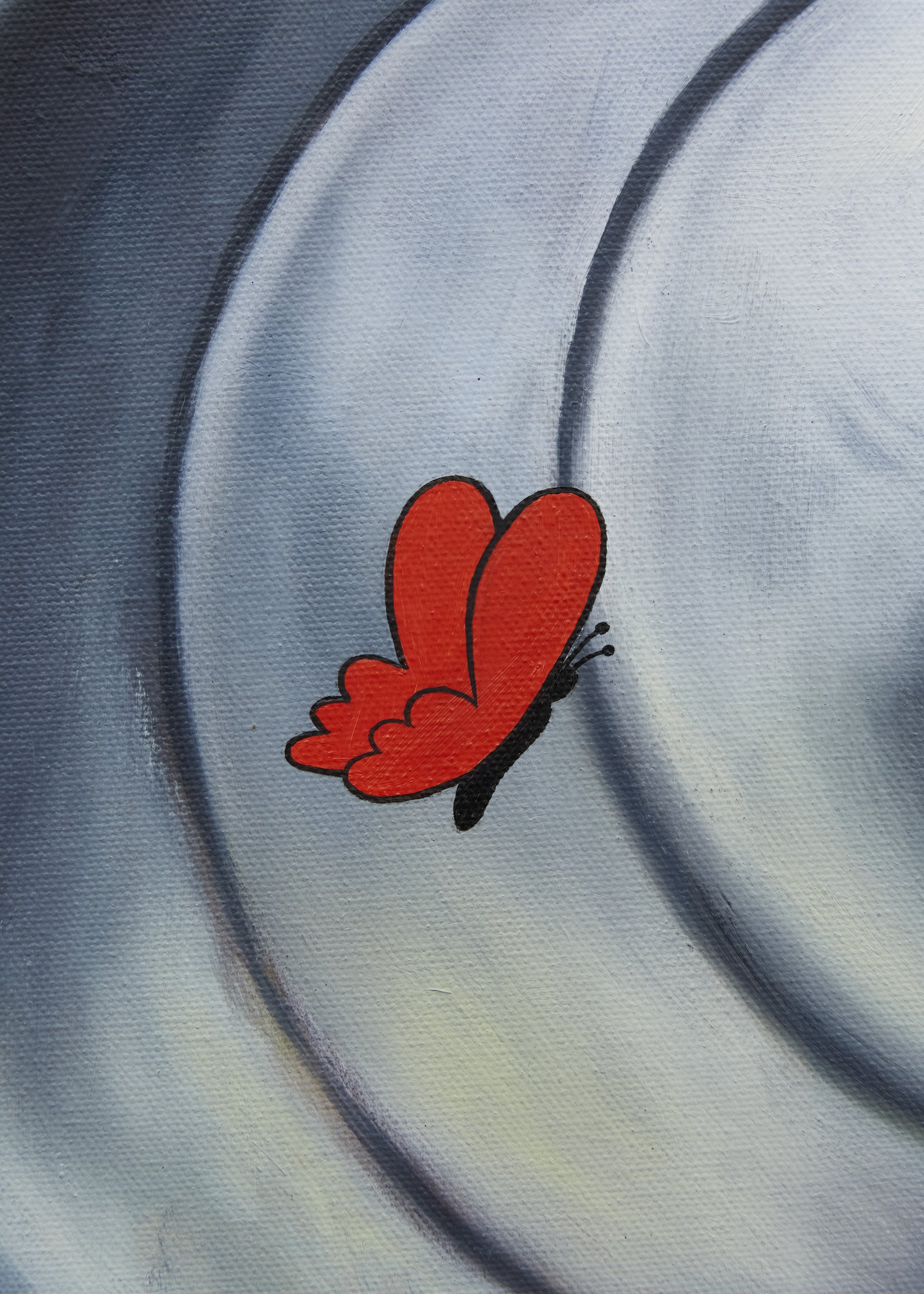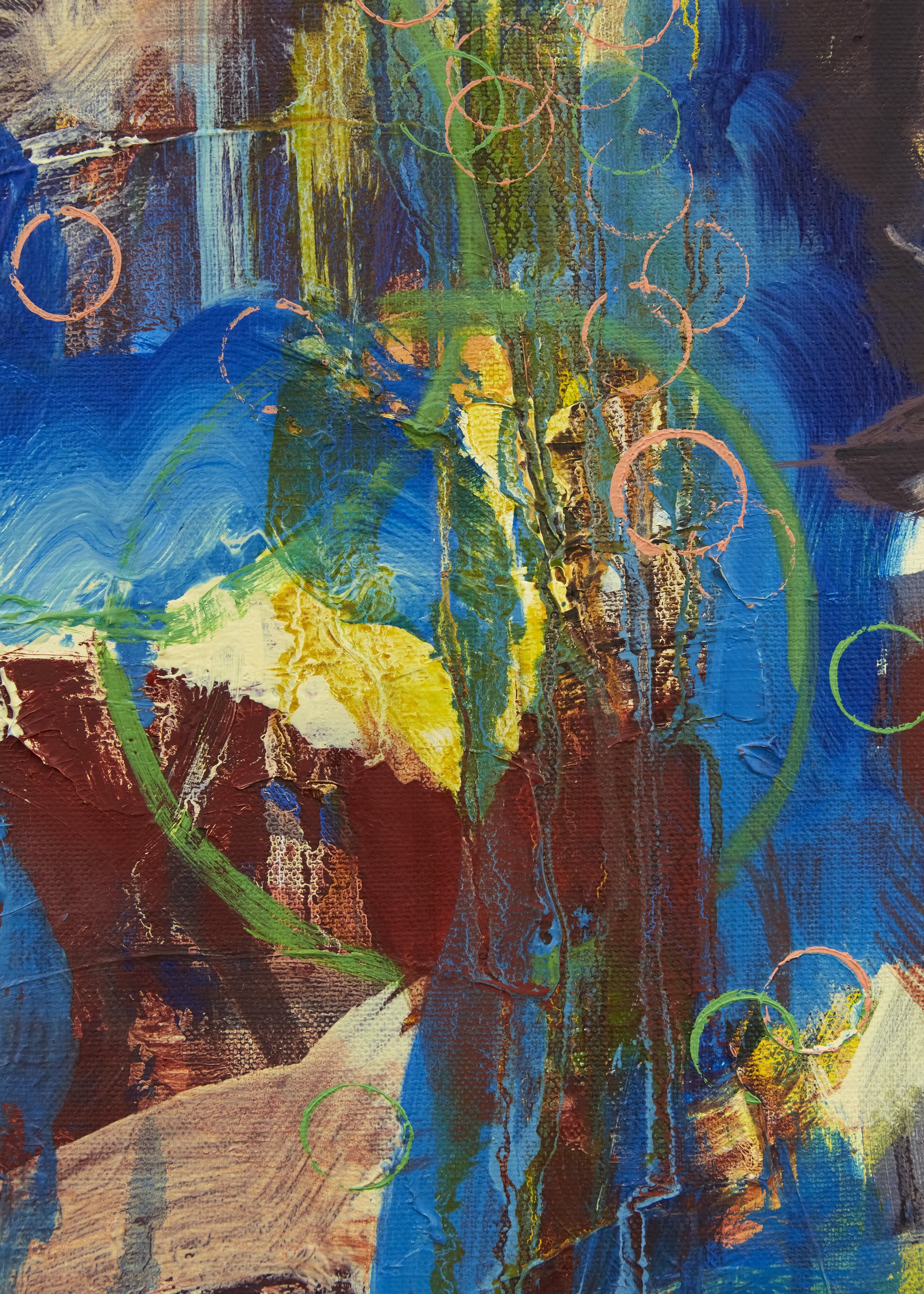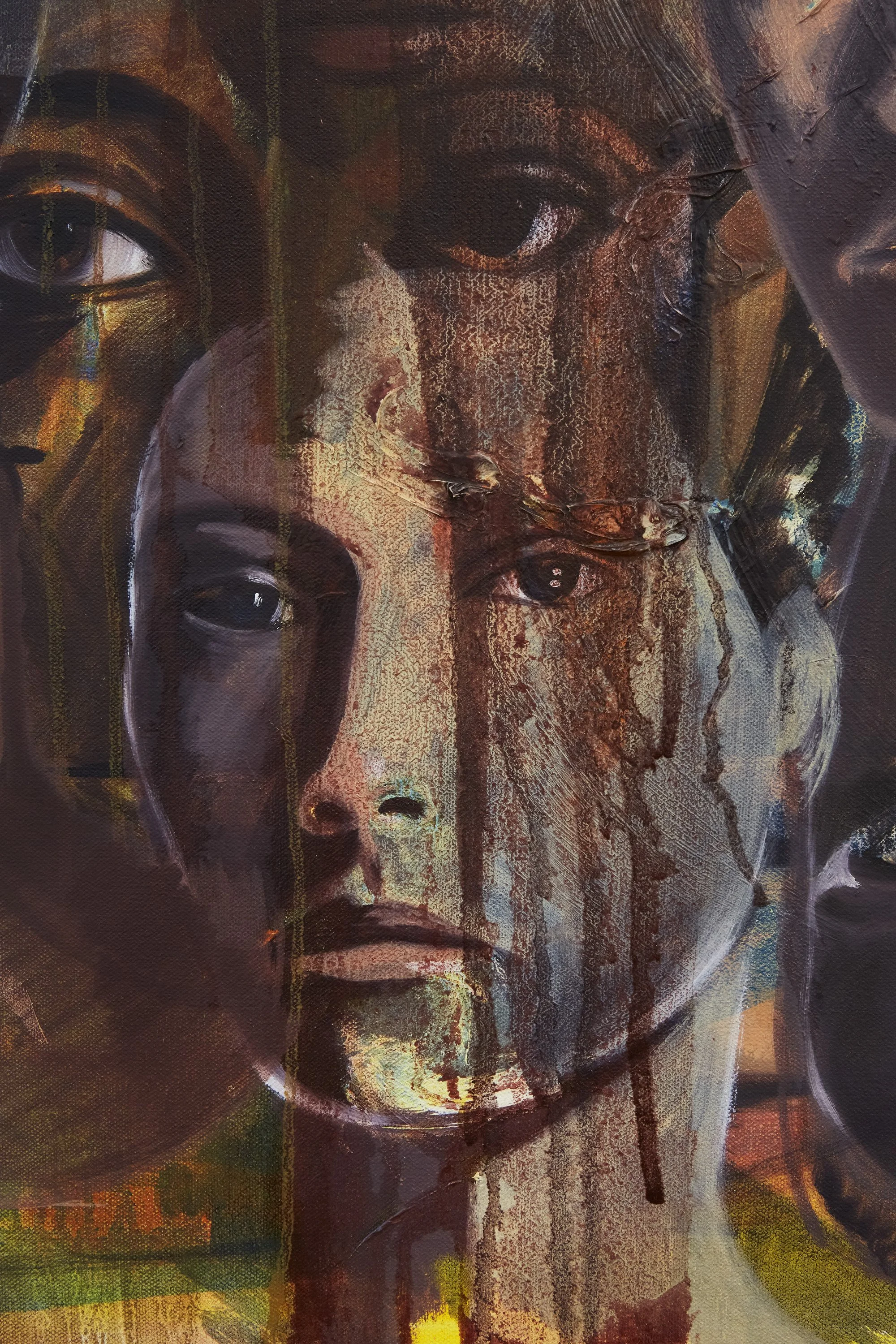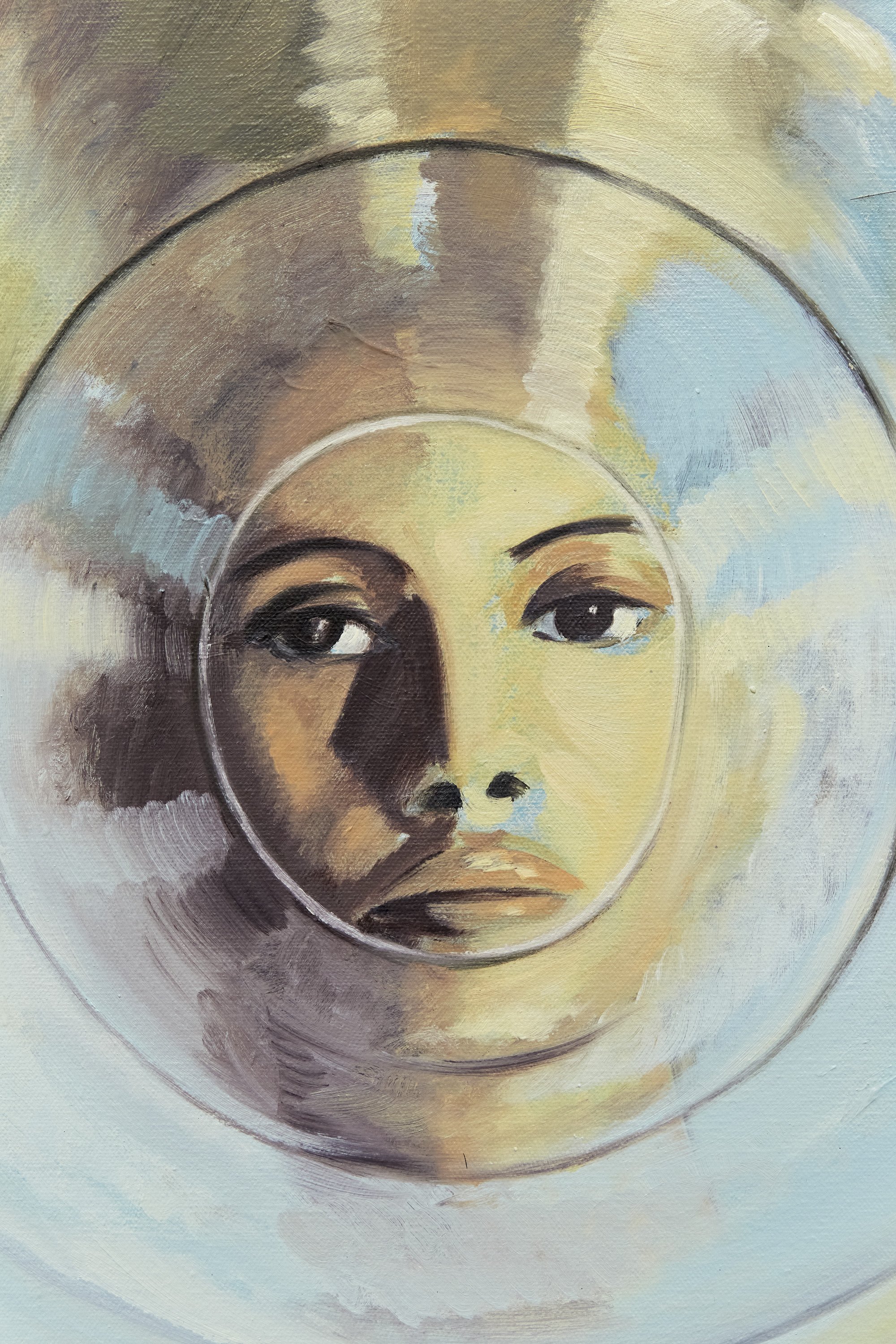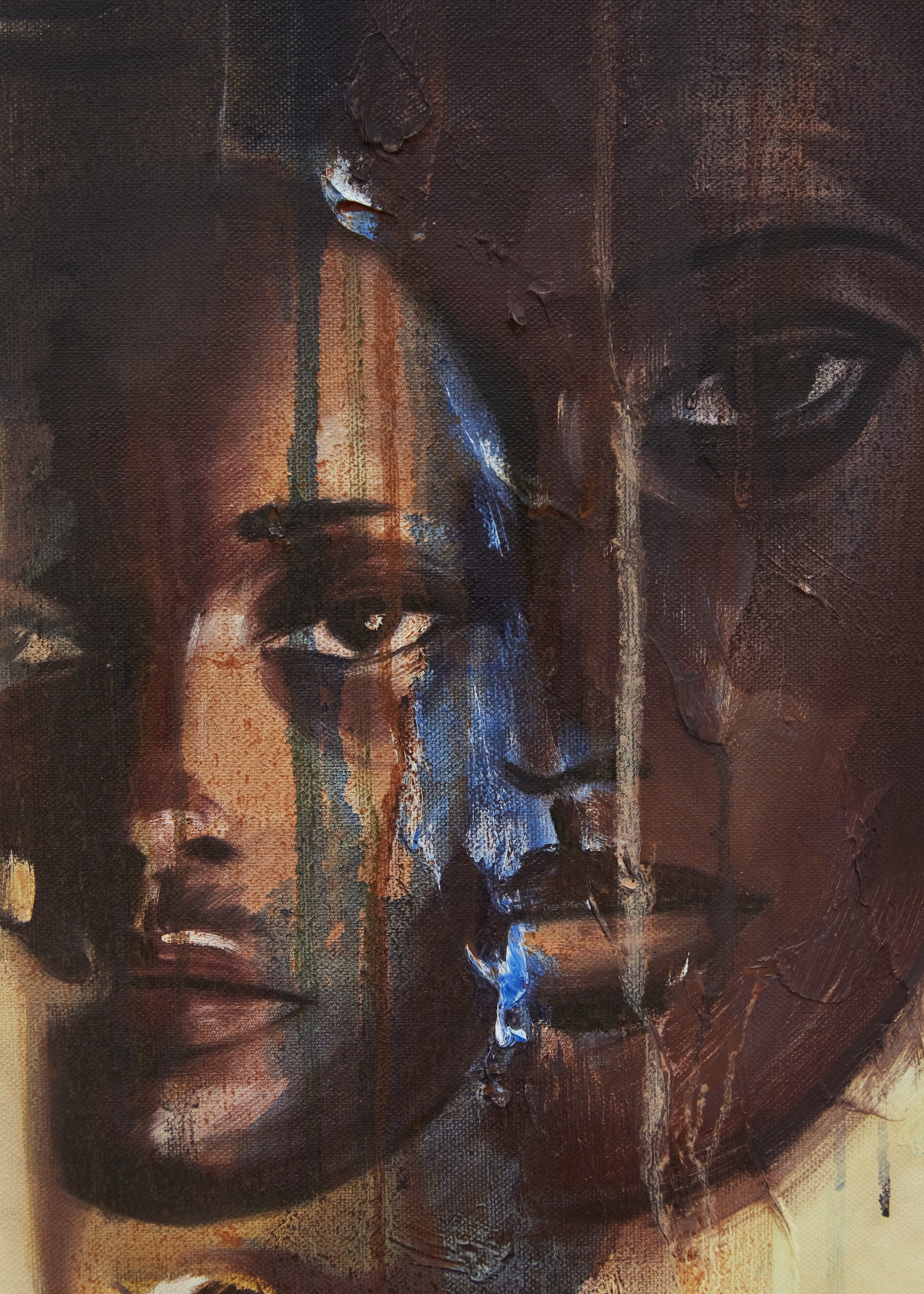Ellie Pratt
Taste Maker
28 September - 11 November (extended)
South Parade’s new location in Farringdon, Central London
South Parade is pleased to inaugurate its new gallery location with a solo exhibition of new paintings by British artist Ellie Pratt, with an accompanying essay by Emma Firth
Ellie Pratt thinks about one's own reflection in the mirror as she looks to everyday life to explore the material potential of the feminine psyche. Through playful experimentation with the painterly surface, these works deconstruct and distort the traditional depiction of the female figure in order to capture a more visceral sense of the body.
-
Ellie Pratt (b.1991, Kent, UK) is a painter who lives and works in London. She received a BA from the Slade School of Fine Art in 2013 and an MA in Painting at the Royal College of Art in 2015. Recent selected solo exhibitions include James Fuentes (New York, 2023) and PM/AM (London, 2021) and group exhibitions at Stems Gallery x Volery Gallery (Dubai, 2023), Particle Collection x Philips (Miami, 2022), The Artist Room Gallery x Phillips (Seoul, 2022), Lawrence Van Hagen Art, Palazzo Barbaro (Venice, 2022), Workplace (London, 2022), Linseed Projects (Shanghai, 2021) and V.O Curations (London, 2020). Pratt has previously shown with South Parade at Art Athina (Athens, 2022) and miart (Milan, 2023).
-
MIRROR MIRROR, ON THE WALL
By Emma Firth
The first time I remember staring at my own reflection I looked like the devil.
A cherubic devil, mind you.
Four years old, in my parent’s bathroom. Quietly and curiously smearing my mother’s deep red Chanel lipstick with the painterly precision of a drunk Jackson Pollock.
Across my cheeks, at first, before staining my mouth, then eyelids, brows, everything. The transformation I remember to be funny and greasy and vaguely horrifying. An in-joke with me, myself, and I. Both performer and audience, anticipating a reaction if anyone were to find me in a mask of my own making.
Sometimes I wonder what life would be like without these looking glasses? Without shop windows? Or changing rooms? Staring into still and dark pools of water? Those tiny and high-definition contraptions you find in hotel rooms. The ones that have you dissecting every open pore, zit, scar, and fine line? Further proof of more timing passing.
How would we see ourselves? Better? Worse? Somewhere resembling a kind of neutrality? Uncritical.
In Sylvia Plath’s 1961 poem, Mirror, it gives voice to this object. Or rather, what this object has come to represent, for so many of us, during different periods of our lives. The power we permit it hangs over us. Here, we tell ourselves, is the most honest picture. They are truth tellers. Plain and simple. Better than a photograph, for sure. Better than our mother’s loving analysis of our bodies and facial features.
“I am not cruel, only truthful,” this mirror tells a mystery woman looking into a lake, “searching my reaches for what she really is.”
I am important to her. She comes and goes.
I would love to give you an accurate number as to how many times a day I both seek or ‘catch’ my own reflection. There are times when it is automatic: in my bathroom, in someone else’s bathroom, in the living room, passing the hallway. When it feels necessary: in a changing room, applying makeup. You could easily chalk this up to vanity. A noun, I would argue, the internet would bestow a purely feminine enterprise. I would also argue this is so rarely the case.
The fact is we all are looking for different things. A mythical something. Something we’ll never know (as much as we may like them to, mirrors have yet to reach vocal maturity). Some confirmation of our measured beauty or ugliness on any given day, or month, or year. Of course, a reflection is a distorted perception of ourselves. It shows us only what we wish to see. Only decades after viewing did I fully come to understand how much Disney movies highlighted its psychological significance, here, showing how the mirror contains a kind of magic in our minds. Acting as a portal into our dreams (Snow White). The outside world (Beauty and the Beast). A fantasy-topia (Alice Through the Looking Glass).
In one moment we can look at ourselves and see only what we want to change. Absorb what is ‘wrong’. Ignorant to the belief that this wrongness is a lie. For instance, supermodel Bella Hadid revealed to VOGUE magazine, a bible of aspirational content, that when she was 14 years old she had a nose job. Something she would come to deeply regret: “I wish I had kept the nose of my ancestors,” she said. “I think I would have grown into it.” There’s something sad and yet universally familiar in that statement. That feeling of wanting to cradle past reflections of ourselves.
On an extreme scale, sometimes the act of looking is quite literally an act of cruelty. “For me the mirror means the acceptance of the self,” the artist Louise Bourgeois once said in an interview. “So, I have lived in a house without mirrors because I couldn’t stand, I couldn’t accept myself. So, the mirror was an enemy.” Before adding, “now, the mirror cannot be your enemy. The mirror has to be your friend, otherwise you are badly off. So instead of seeing the mirror as a symbol of vanity—no danger there—I saw the mirror as a symbol of acceptance.”
Pamela Anderson, 1990s Playboy pin-up and former Baywatch star, shared this fear, too (eisoptrophobia, I’ve come to discover is the specific diagnosis, an anxiety fuelled by seeing oneself in a reflective surface): “I have this phobia, I don't like mirrors. And I don't watch myself on television. If anything comes on, I make them shut it off, or I leave the room.”
Consider the alternative. Relying on seeing yourself only the way other people see you. The fact is every portrait would, still, be different. It’s inescapable. There is no ‘true’ mirror on the wall. Not really. Our self-image is shaped by an assortment of mirrors, competing narratives, all varying in shape and size and definition. Your reflection belongs as much to strangers on the internet, models in magazines, family, friends, colleagues, ex-lovers, partners, as it belongs to you.
While there is temptation to think otherwise, we don’t ever really learn to love ourselves by ourselves. And there is surely no more comforting a feeling than being in proximity to a person aware of these reflections.
Masks of our own making.
A Souvenir, 2023. Oil on canvas, 40 x 30 cm
(Detail) A Souvenir, 2023.
(Detail) A Souvenir, 2023.
Reflections 2, 2023. Oil on linen, 140 x 100 cm
(Detail) Reflections 2, 2023.
(Detail) Reflections 2, 2023.
(Detail) Reflections 2, 2023.
(Detail) Reflections 2, 2023.
The Conversation, 2023. Oil on linen, 60 x 45 cm
(Detail) The Conversation, 2023.
(Detail) The Conversation, 2023.
Little Butterfly (The Shape of Longing), 2023. Oil on canvas, 60 x 45 cm
(Detail) Little Butterfly (The Shape of Longing), 2023.
Puncture, 2023. Oil on linen, 60 x 45 cm
(Detail) Puncture, 2023.
(Detail) Puncture, 2023.
Reflection (A Girl), 2023. Oil on canvas, 40 x 30 cm
(Detail) Reflection (A Girl), 2023.
Reflections 1, 2023. Oil on canvas, 120 x 80 cm
(Detail) Reflections 1, 2023.
(Detail) Reflections 1, 2023.
(Detail) Reflections 1, 2023.
Afterbirth, 2023. Oil on linen, 40 x 30 cm
(Detail) Afterbirth, 2023.
Engine, 2023. Oil on canvas, 140 x 120 cm
(Detail) Engine, 2023.
The View, 2023. Oil on canvas, 60 x 50 cm
(Detail) The View, 2023.
Reflections 3, 2023. Oil on linen, 160 x 115 cm
(Detail) Reflections 3, 2023.
(Detail) Reflections 3, 2023.
(Detail) Reflections 3, 2023.
Puncture (Recoil), 2023. Pencil on paper, 29.7 x 42 cm / 34.5 x 47.5 cm (framed)
(Detail) Puncture (Recoil), 2023.




